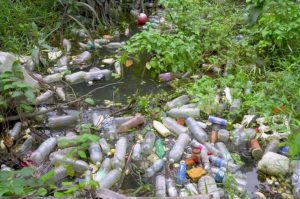Siliguri Plastic Ban: In a significant and proactive step aimed at addressing the growing threat of environmental degradation, the Siliguri Municipal Corporation (SMC)—which serves as the principal civic authority in the northern Bengal region—has initiated a comprehensive and multi-layered campaign targeting the rampant use of plastic carry bags and thermocol (commonly known as polystyrene) products. This new phase of enforcement comes as part of a broader, long-standing commitment by the SMC to transition Siliguri into a cleaner, greener, and more environmentally conscious urban hub.

Although a formal ban on plastic carry bags has been in place across the Siliguri civic jurisdiction as well as in other parts of the Darjeeling district for several years now, enforcement has often been lax, leading to widespread non-compliance. Plastic bags, especially the thin, single-use variety, continue to flood local markets, shops, and even residential neighborhoods, contributing significantly to urban pollution, drainage blockages, and the long-term contamination of soil and water resources. Likewise, thermocol items—frequently used for packaging and in food services—remain a common sight despite their non-biodegradable nature and adverse impact on ecosystems.


Recognizing the urgent need to reverse this trend and ensure stricter adherence to environmental laws, the SMC’s new campaign is not just a symbolic gesture but a full-scale crackdown that aims to eliminate both the supply and demand of these environmentally harmful products. With this initiative, the civic body is signaling a clear shift from passive regulation to active, on-the-ground implementation, combining administrative authority with grassroots mobilization to bring about real and visible change in the city’s environmental landscape.
By positioning itself at the forefront of urban sustainability efforts in North Bengal, the SMC hopes to set a precedent for other municipalities in the region to follow. Through coordinated action, policy enforcement, and public awareness drives, this campaign seeks to reshape public behavior, promote the use of eco-friendly alternatives, and ultimately move Siliguri closer to its vision of becoming a model green city.
Strategic Measures and Enforcement: A Multi-Pronged Crackdown on Plastic Pollution
In its bid to transform Siliguri into an environmentally responsible and sustainable urban center, the Siliguri Municipal Corporation (SMC) has outlined a comprehensive plan focused on eradicating the use and circulation of banned plastic carry bags and thermocol-based products. During a recently convened meeting of the SMC’s environment committee, top officials, including Mayor Gautam Deb, came together to deliberate on the necessary actions required to enforce the long-standing plastic ban. This meeting served as a pivotal moment in laying the foundation for a renewed and more aggressive crackdown against plastic usage in the city.
The outcome of the discussion was the formulation of a strategic, dual-faceted approach aimed at achieving two core objectives—intensifying public awareness and ensuring strict on-ground enforcement. Mayor Deb underlined the need to not only educate the public and business communities about the environmental hazards posed by plastic but also to create a visible deterrent against its continued use through active surveillance and punitive measures.
To ensure the initiative has tangible impact, the SMC is set to work in close coordination with the Siliguri Metropolitan Police. Together, they plan to mount frequent and surprise raids across key commercial zones, local markets, and storage warehouses. A special emphasis will be placed on monitoring all entry and exit points into the city, such as highways, bus depots, and railway freight stations, which are common channels through which banned plastic items are smuggled into urban markets. The goal is to choke the supply chain and curb illegal transportation of plastic goods before they reach retail shelves.
The planned enforcement strategy will include on-spot confiscation of banned items, levying of hefty fines on violators, and even the temporary suspension or cancellation of trade licenses for repeat offenders. Civic officials have also hinted at roping in local NGOs, ward councilors, and school authorities to amplify the outreach and create community-led surveillance teams that can report violations at the micro level.
Backing this enforcement drive is a dedicated financial allocation of ₹3 lakh from the municipal budget for the 2024–25 fiscal year. Though modest in scale, this fund is expected to fuel a series of highly targeted initiatives including awareness workshops, public street plays, audio-visual campaigns, school outreach programs, and mobile information kiosks that will travel through local markets educating vendors and consumers alike.
The funds will also support logistical requirements for enforcement squads—fuel for vehicles, printing of information materials, hiring of temporary staff for raids, and provisioning of eco-friendly alternatives such as jute and cloth bags to distribute as part of awareness drives. By combining budgetary planning with regulatory action, the SMC aims to build a sustained momentum rather than a short-lived campaign that fizzles out after a few weeks.
Importantly, the campaign isn’t only aimed at punishing violators—it also focuses on creating a behavioral shift. Mayor Deb reiterated that while penalties are essential for immediate impact, long-term success lies in building a sense of civic responsibility among residents. “This is not merely a civic regulation issue; it’s an environmental crisis that affects us all. Our future depends on the choices we make today,” Deb stated during a press briefing following the committee meeting.
Siliguri Plastic Ban: Environmental Restoration Initiatives
While the Siliguri Municipal Corporation (SMC) continues to crack down on the proliferation of banned plastic items in the city, it is also rolling out a parallel initiative that speaks to its long-term environmental vision—an ambitious, multi-tiered strategy aimed at restoring and enhancing the city’s green cover. Recognizing that true sustainability goes beyond prohibition and regulation, the SMC is investing both resources and planning into transforming Siliguri into a more breathable, aesthetically pleasing, and ecologically balanced urban environment.
One of the cornerstone efforts in this green agenda is a comprehensive afforestation drive, which includes the planting of approximately 10,000 saplings across various wards and public spaces in the city. This initiative, backed by a substantial budget allocation of ₹10 lakh for the 2024–25 fiscal year, is expected to significantly improve the city’s air quality, support biodiversity, and provide much-needed green relief in an increasingly urbanized landscape.
The plantation drive will focus on a diverse mix of native tree species known for their environmental benefits—such as neem, peepal, gulmohar, banyan, and fruit-bearing trees like mango and guava. These species have been carefully chosen not only for their ecological value but also for their ability to thrive in Siliguri’s subtropical climate. They will be planted in parks, along road medians, school campuses, hospital compounds, municipal buildings, and along riverbanks and canals that are being revitalized as part of broader water conservation efforts.
In an encouraging precedent that underscores SMC’s seriousness in preserving urban greenery, the corporation has already undertaken a successful replantation program involving the relocation of mature trees from development sites. A total of 180 trees were carefully uprooted and replanted in designated green zones using scientifically approved methods. Impressively, 130 of these trees have survived and are continuing to grow, demonstrating the viability of replantation as an alternative to indiscriminate tree felling. This success story serves as a model for future infrastructure projects, showing that development and ecological preservation can indeed go hand-in-hand with proper planning.
Mayor Gautam Deb has been vocal in advocating for a more environmentally responsible approach to urban planning. In alignment with this vision, the SMC is initiating dialogue with the Confederation of Real Estate Developers’ Association of India (Credai), seeking collaboration from the private sector to integrate sustainability into new and ongoing construction projects. These discussions are expected to culminate in a memorandum of understanding (MoU) that will outline specific green mandates for builders and developers operating within Siliguri.
Among the key proposals under consideration is the mandatory implementation of rainwater harvesting systems in all large-scale residential and commercial developments. Given the region’s significant annual rainfall, such systems can help reduce dependence on municipal water supply, recharge groundwater tables, and prevent waterlogging—a perennial issue during the monsoon months. Developers will be encouraged, and eventually required, to install rooftop harvesting units, permeable paving, and stormwater management infrastructure in their projects.
Another significant measure being promoted is the mandatory plantation of trees within construction sites, particularly along boundaries, parking zones, and internal roads. These green buffers not only reduce the urban heat island effect but also improve the microclimate, lower ambient temperatures, and absorb airborne pollutants—a pressing concern in Siliguri given its proximity to congested transit corridors and industrial activities.
The SMC also plans to offer incentives to eco-conscious developers, including faster building permit clearances, recognition awards, and tax rebates for projects that go beyond the minimum green compliance norms. Furthermore, Credai members will be invited to take part in community greening initiatives, such as public park restorations and urban forestation drives, under their corporate social responsibility (CSR) programs.
All these restoration efforts form part of a wider policy framework aimed at building climate resilience in Siliguri—a city that is increasingly vulnerable to extreme weather events, including flash floods, prolonged heatwaves, and erratic rainfall patterns. By expanding green spaces, improving drainage through natural solutions, and reducing the carbon footprint of urban development, the SMC hopes to buffer the city from these environmental shocks and make it more livable for future generations.
Importantly, the greening mission is not just a top-down initiative. The civic body intends to involve citizens actively in the process through community plantation programs, school competitions, awareness drives, and tree adoption schemes. Ward-level committees will play a crucial role in identifying plantation sites, ensuring tree care, and monitoring growth progress. Local residents will be encouraged to become “green wardens” for trees planted in their vicinity, fostering a sense of ownership and shared responsibility for the city’s green lungs.
In essence, the SMC’s environmental restoration campaign represents a hopeful and progressive step in reimagining urban growth—not as a threat to nature, but as an opportunity to coexist with it. With strategic investments, collaborative planning, and citizen participation, Siliguri is poised to lead by example as a modern Indian city that doesn’t just grow, but grows green.
Siliguri Plastic Ban: Community Engagement and Future Outlook
The SMC’s comprehensive approach underscores its commitment to fostering an environmentally sustainable urban environment. By combining regulatory enforcement with community engagement and infrastructural development, the corporation aims to mitigate pollution and enhance the quality of life for Siliguri’s residents.
As these initiatives progress, the SMC anticipates increased public awareness and cooperation, essential components in the successful realization of its environmental objectives.
-
Use when referencing national policies or the legal framework governing plastic bans.
- Ideal for linking technical guidelines, plastic classification, and compliance norms.
- Use when giving global context to the issue of plastic pollution or comparing global efforts with local action.
Also read: Home | Channel 6 Network – Latest News, Breaking Updates: Politics, Business, Tech & More

